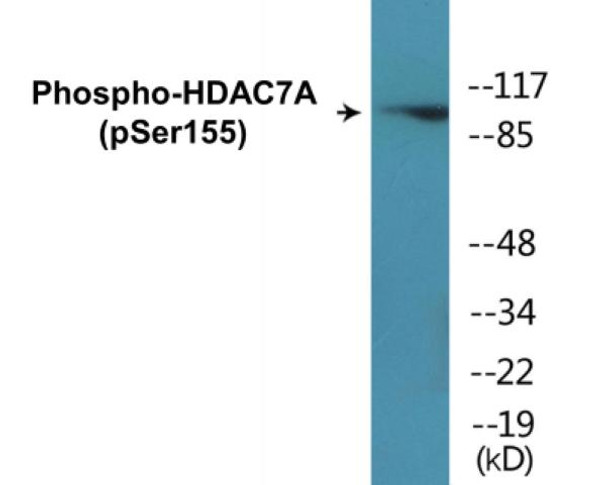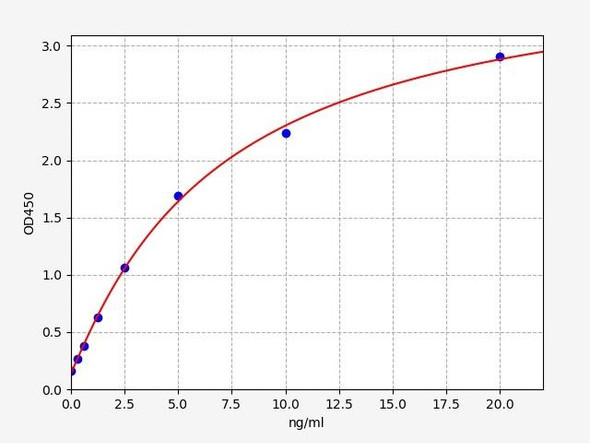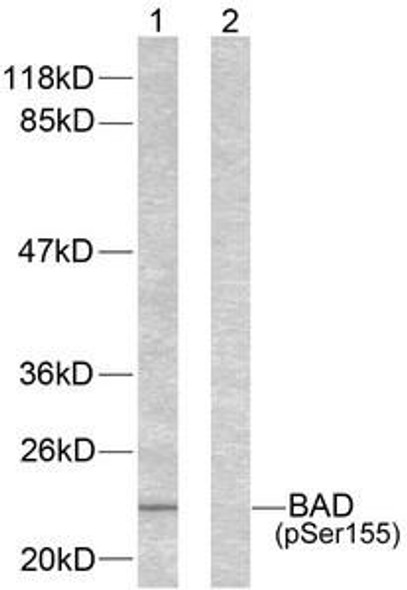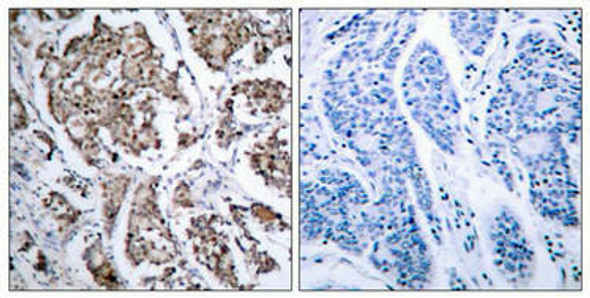Phospho-HDAC7A (Ser155) In-Cell ELISA
- SKU:
- CBCAB01700
- Product Type:
- ELISA Kit
- ELISA Type:
- Cell Based Phospho Specific
- Research Area:
- Epigenetics and Nuclear Signaling
- Reactivity:
- Human
- Mouse
- Rat
- Detection Method:
- Colorimetric
Frequently bought together:
Description
Phospho-HDAC7A (Ser155) Cell-Based ELISA
| Product Description: | The Phospho-HDAC7A (Ser155) Colorimetric Cell-Based ELISA Kit allows for qualitative detection of Phospho-HDAC7A(Ser155) in plated and fixed cells. |
| Target Synonyms: | HD7a; HDA7; HDAC7A; Histone deacetylase 7a |
| Detection Target: | Phospho-IRAK1(Thr209) |
| Reactivity: | H:S155, M:S178, R:S164 |
| Pack Size: | 2 x 96 assays |
| Detection Method: | Colorimetric 450 nm |
| Format: | Cell-Based ELISA/In-Cell ELISA |
| Storage and Stability Guarantee: | 4 °C/6 Months |
| Sample Type: | Plated & fixed cells |
| Range: | 5000 cells/well minimum |
| Time: | 4.5 hours |
Phospho-HDAC7A (Ser155) Cell-Based ELISA Protein Information
| UniProt Protein Function: | Responsible for the deacetylation of lysine residues on the N-terminal part of the core histones (H2A, H2B, H3 and H4). Histone deacetylation gives a tag for epigenetic repression and plays an important role in transcriptional regulation, cell cycle progression and developmental events. Histone deacetylases act via the formation of large multiprotein complexes. Involved in muscle maturation by repressing transcription of myocyte enhancer factors such as MEF2A, MEF2B and MEF2C. During muscle differentiation, it shuttles into the cytoplasm, allowing the expression of myocyte enhancer factors. May be involved in Epstein-Barr virus (EBV) latency, possibly by repressing the viral BZLF1 gene. Positively regulates the transcriptional repressor activity of FOXP3 (PubMed:17360565). |
| NCBI Summary: | Histones play a critical role in transcriptional regulation, cell cycle progression, and developmental events. Histone acetylation/deacetylation alters chromosome structure and affects transcription factor access to DNA. The protein encoded by this gene has sequence homology to members of the histone deacetylase family. This gene is orthologous to mouse HDAC7 gene whose protein promotes repression mediated via the transcriptional corepressor SMRT. Alternatively spliced transcript variants encoding different isoforms have been found for this gene. [provided by RefSeq, Jul 2008] |
| UniProt Code: | Q8WUI4 |
| NCBI GenInfo Identifier: | 30913097 |
| NCBI Gene ID: | 51564 |
| NCBI Accession: | Q8WUI4.2 |
| UniProt Secondary Accession: | Q8WUI4,Q6P1W9, Q6W9G7, Q7Z4K2, Q7Z5I1, Q96K01, Q9BR73 Q9H7L0, Q9NW41, B3KY08, B4DWI0, B4E0Q5, |
| UniProt Related Accession: | Q8WUI4 |
| Molecular Weight: | 66,187 Da |
| NCBI Full Name: | Histone deacetylase 7 |
| NCBI Synonym Full Names: | histone deacetylase 7 |
| NCBI Official Symbol: | HDAC7 |
| NCBI Official Synonym Symbols: | HD7; HD7A; HDAC7A |
| NCBI Protein Information: | histone deacetylase 7 |
| UniProt Protein Name: | Histone deacetylase 7 |
| UniProt Synonym Protein Names: | Histone deacetylase 7A; HD7a |
| Protein Family: | Histone deacetylase |
| UniProt Gene Name: | HDAC7 |
| UniProt Entry Name: | HDAC7_HUMAN |







